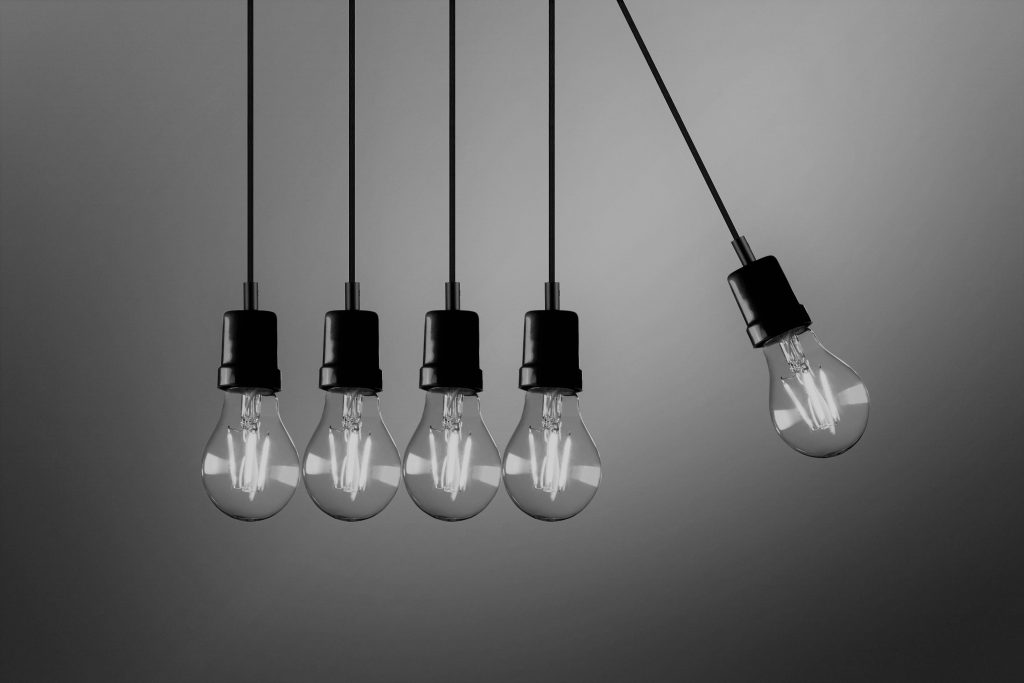According to stats, the Artificial Intelligence market is expected to rise from 21.4 billion US dollars in 2018 to 190 billion US dollars by 2025.
We are now entering the Fourth Industrial Revolution, and at its forefront are two emerging technologies: Artificial Intelligence (AI) and Blockchain. As predicted, both the technologies will contribute trillions of US dollars to the global economy introducing progressive shifts in every aspect of our life.
For those who still need an introduction to them, AI is the intelligent human brain – and blockchain is simply a public immutable, decentralized database used to store encrypted data. AI can mimic the human mind and make intelligent decisions based on intellectual thinking, while blockchain can securely store highly sensitive data and automate trust between multiple parties.
AI and blockchain together can help us in the following
- Data Security
- Improved Trust on Robotic Decisions
- Decentralized Intelligence
- High Efficiency
Data Security
Data is the new gold – and privacy of this gold is a growing concern, especially after the recent Facebook scandal of 2018, in which 50 million users profile data was targeted without their consent and used for political advertising purposes by Cambridge Analytica, a third-party political firm. This concern can together be solved with blockchain and Artificial Intelligence.
Blockchain is known for storing sensitive and personal data in a diskless environment. Information stored inside a blockchain is highly secure. The database holds data that is digitally signed, which means only their ‘‘respective private keys’’ must be secured, which enables AI algorithms to work on secure data and thereby ensures more trusted and reliable decision outcomes.
Better Trust on Robotic Decisions
The decisions made by AI devices are difficult for users to understand and trust, so they become dysfunctional. Blockchain records transactions in decentralized ledgers on a point-by-point basis. The records on a blockchain do not tamper, during the human-involved auditing process, the decisions made by AI are easier to accept and trust. Recording the decision-making process of an AI system on a blockchain would increase transparency. The decentralized approach can help us eliminate the need for a third-party auditor.
Decentralized Intelligence
The centralized data storage becomes highly sensitive in terms of privacy and security when it involves personal and sensitive data about users, activities, health records, and financial information. Large-scale data collection exposes the scaling and capacity related issues of centralized infrastructure where AI applications need to process big datasets. Blockchain-based decentralized storage will help secure the data storage across the participating networks.
In these systems, each node keeps a publicly encrypted copy of the whole database to ensure data availability for the desired user. The respective user can use their data whenever needed.
High Efficiency
Multiuser business processes, which involve multiple partners such as individual users, business firms, and governmental organizations, are inefficient due to multiparty authorization of business transactions. The integration of AI and blockchain technology will enable intelligent Decentralized Autonomous Agents for automatic and fast validation of data transfers among different stakeholders.
Conclusion
Blockchain has its weaknesses, such as security, scalability, and efficiency, while AI has its fair share of problems with trustworthiness, explainability, and privacy. The alliance of these two technologies seems flawless; they could complement each other to revolutionize the next digital generation. Blockchain will bring trust, privacy, and explainability to AI. In return, AI can help build a machine learning system on the blockchain with better security, scalability, and more effective personalization.
You may also like: https://deqode.com/blog/blockchain-iot/






1 Comment
Pingback: Top 10 Technology Trends that will shape 2023 | Deqode Blog